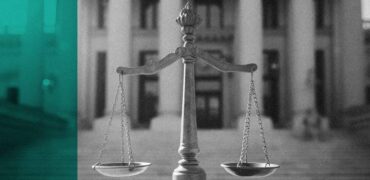The taxation of an unfinished building raises, in practice, problems of interpretation, especially due to the pressures of the Court of Accounts or the overzealousness of tax officials. Hence a question that we also asked ourselves, at Costaș, Negru & Asociații: when exactly is building tax due for an unfinished construction?
The case managed by our team is under the empire of the old Fiscal Code, but there are no substantive changes in the new regulation. For this reason, we will refer to the texts from the old normative act.
Specifically, under the pressure of the Court of Accounts, the Sibiu Local Fiscal Directorate carried out a tax inspection at a company in 2017 and established an additional tax on buildings in the amount of over 4 million lei. Specifically, the company was charged with the fact that the construction permit for the building from 2009 expired on June 1, 2012, and that the issuance of a new construction permit was requested only on July 4, 2012. Therefore, starting from 1.07.2012, building tax was calculated for an unfinished hotel, at the investment value recorded in the accounting (over 14 million lei).
The litigation had a tortuous evolution. After the rejection of the tax appeal and the administrative litigation by the Alba Iulia Court of Appeal, at the end of 2022 the High Court of Cassation and Justice sent the case for retrial to the court of first instance. It was expressly indicated, on that occasion, that the court of first instance is obliged to administer a technical expertise and verify, in detail, the existing building permits and the physical state of the works.
In the retrial, the Alba Iulia Court of Appeal rejected the action again, ignoring both the arguments of the plaintiff company and the conclusions of two technical expertises which found that the hotel in question was not a “completed building” and that the beneficiary of the investment obtained, successively, building permits for the continuation of currently valid unfinished works. Moreover, the judge of the case showed that the company should have proceeded with the reception of the construction, even if it was not completed.
In the appeal filed, the company presented a series of substantive arguments to combat the conclusion of the tax inspectors and the decision of the Alba Iulia Court of Appeal.
Thus, with a preliminary title, it was pointed out that we are not in the presence of a completed construction, the company obtaining, in the period 2012 – 2024, building permits in the extension of the initial one, for the completion of the works. Starting from this, it was shown that the reception of the construction could not be obtained technically.
On the one hand, in relation to the provisions of art. 254 para. (8) lit. c) from the old Fiscal Code, corroborated with point 62 of the corresponding methodological norms, the premise of taxation is the record of ascertaining the physical state of the works. In the case, such a report was not issued either in the usual way (when the works were completed on time) nor in the way of a sanction (when the works were not completed, the extension of the building permit was not requested and the Service Urbanism of the local authority ascertained, for taxation purposes, the physical state of the works).
On the other hand, in relation to the provisions of the Regulation on the reception of construction works and related installations, approved by H.G. no. 273/1994, in the case of unfinished works, the reception commission upon completion of the works was obliged to suspend any started reception.
In the same context, the applicant company also emphasized the following key aspect: within the same administrative apparatus, the Urban Planning Service considered that there was no completed construction and issued authorizations for the continuation of the works, and the Taxes and Local Taxes Service considered that there was a completed construction. Such a divergence of opinion on an essential aspect for taxation is certainly incompatible with the principle of legal certainty.
Through the same memorandum of appeal, the investor indicated that his right to execute the work was never interrupted and that he was granted further building permits, for the entire period, to complete the works (blocked by the delicate financial situation of the company ). From here, a logical consequence: a building for which the execution of works has not been completed cannot be received nor can it be taxed.
Finally, in order to convince the appeals court, the investor also referred to the unequivocal conclusions of the technical expertise. They concluded that the hotel that wants to be built has only 11 floors built out of the 12 authorized and the resistance structure for the last level and the circulating terrace from this level has not been built. Thus, although formally there is a roof (concrete slab), it is not the roof of the building and one cannot speak, in fiscally relevant technical terms, of a construction that has the structural elements of a building: the walls and the roof.
By the civil decision no. 3259 of June 13, 2024, the High Court of Cassation and Justice admitted the appeal, quashed the decision of the Alba Iulia Court of Appeal and, in the retrial, canceled the fiscal obligations representing additional tax on buildings and accessories.
Although the reasoning of the supreme court is not yet available, it seems obvious to us that the arguments presented were properly valued, which, as a whole, could and should lead to the conclusion that we are in the presence of an unfinished construction, which does not represent a “building” in the fiscal sense and for which, consequently, no building tax is due.
It is a solution that, for the Costaș, Negru & Asociații team, represents a confirmation of expertise in the field of local taxation, a sub-area of practice less often approached by law firms specialized in tax matters. We believe that the solution obtained, after the reasoning of the High Court of Cassation and Justice will be revealed, can represent an important element for clarifying similar cases.
Clientul a fost reprezentat, în fața instanțelor de contencios fiscal, de către o echipă coordonată de av. dr. Cosmin Flavius Costaș (Baroul Arad).
Costaș, Negru & Asociații este o societate civilă de avocați cu birouri în Cluj-Napoca, București și Arad, care oferă asistență, reprezentare juridică și consultanță în mai multe arii de practică prin intermediul unei echipe compuse din 20 avocați și consultanți. Detaliile privind serviciile juridice și componența echipei pot fi găsite pe pagina web https://www.costas-negru.ro. Toate drepturile pentru materialele publicate pe pagina web a societății și prin intermediul rețelelor sociale aparțin Costaș, Negru & Asociații, reproducerea acestora fiind permisă doar în scop de informare și cu citarea corectă și completă a sursei.













